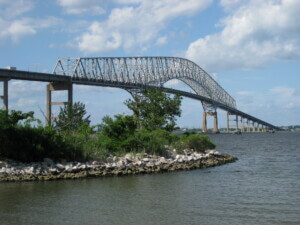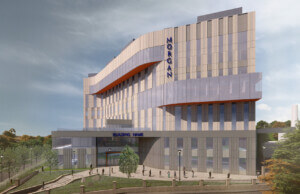This past Monday, the Baltimore City Council approved a $660 million bond deal for the Port Covington project, a waterfront development that includes the new headquarters for Under Armour, as well as shops, housing offices, and manufacturing spaces that promise to encourage economic growth. As a whole, the project is projected to create 26,500 permanent jobs and have a $4.3 billion annual economic impact.
The council approved the deal 12–1 and funds for the infrastructure will come from bonds to be paid back by the developer, Plank’s Sagamore Development, through future taxes—it is the largest tax-increment financing deal in Baltimore’s history.
Proponents believe it’s a good solution to finance infrastructure in Baltimore. The developer agreed to share profits with the city: If Port Covington earns greater than 15 percent profit, then the city will receive 25 percent of any additional profit. In addition, $100 million (already approved by the Board of Estimates) will be allocated to citywide benefits and will support local workers (30 perfect of all construction works must be from Baltimore) and 20 percent of housing units will be affordable.
Critics believe crucial elements are missing from the agreement and that the funds would be better diverted to the city’s educational fund. According to a city-funded analysis, the development could cause the city to lose up to $315 million in state aid over the next 40 years because, although Baltimore will appear to be wealthier, it will not actually receive that wealth until the bonds are repaid. Additionally, they point out the affordable housing agreement has a potential loophole in that Sagamore can pay into an inclusionary housing fund instead of building the units.
The debates will continue as the deal is sorted out. The General Assembly promised city officials that it will prevent the educational funding from being affected and, Donald C. Fry, president and of the Greater Baltimore Committee, told the Baltimore Sun that this could set a positive precedent: “If any company is looking to come to Baltimore and get some form of government assistance or support in the nature of TIF or [payment in lieu of taxes], I think they’re going to know there are some things that are going to be expected,” Fry said.
The project will start with the $19.6 million East Waterfront Park.










